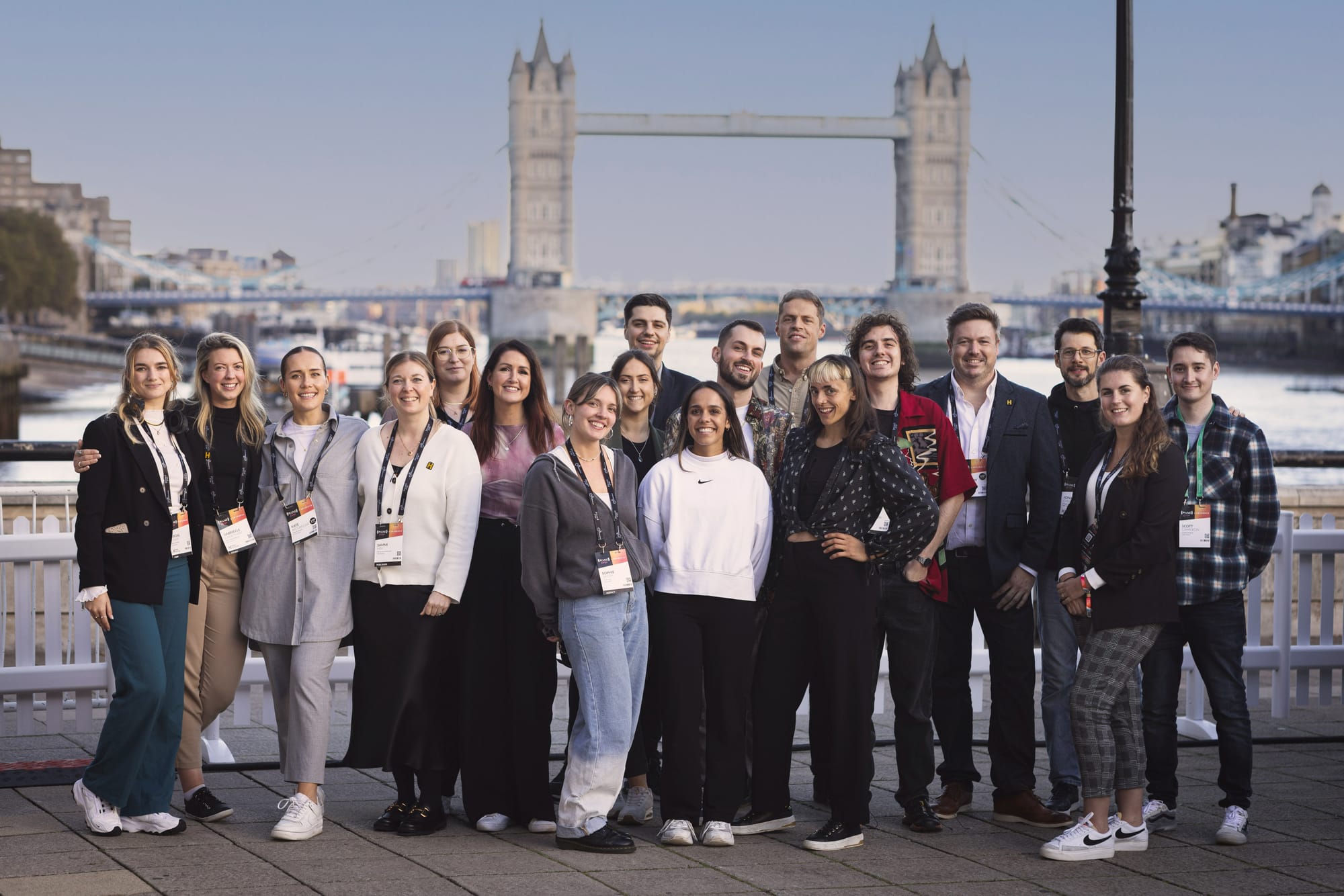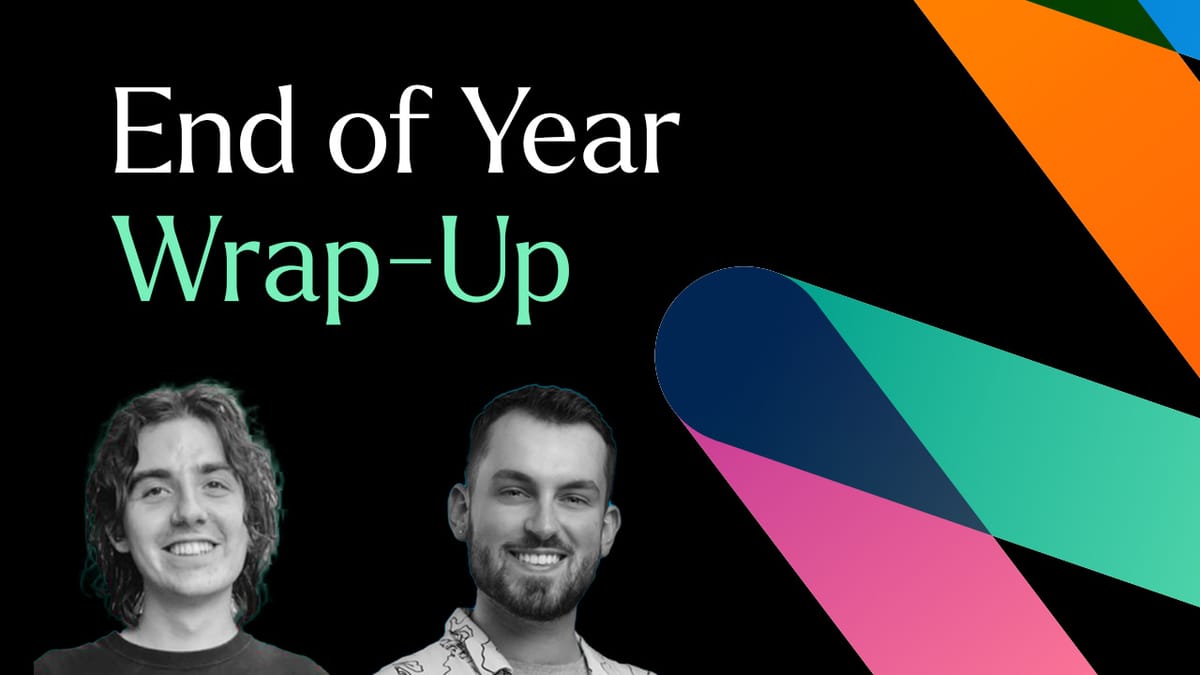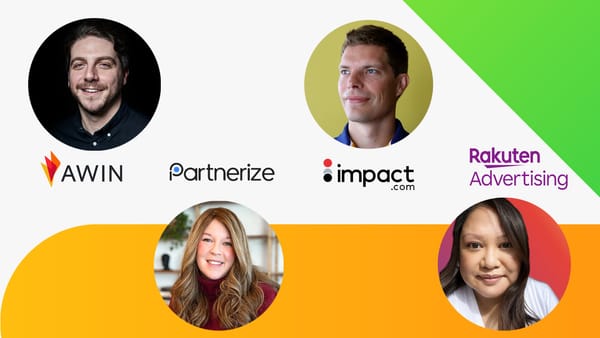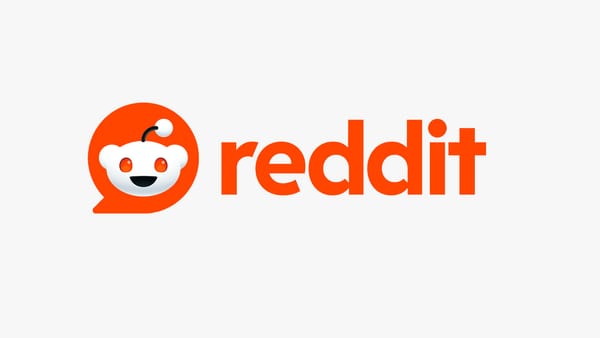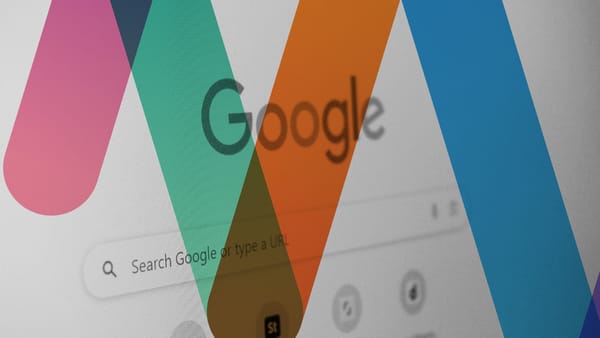This year has been an explosive one for the partnership marketing world. We’ve seen a whole new frontier of technology dominating headlines and everyone’s been scrambling to get in on the action; influencer marketing has matured even more as a channel, breaking out of the four walls of your phone screen and onto red carpets; and affiliate marketing appears to be inching ever so closer to solving its perennial problem with tracking.
From Friday 22nd December, we’ll be taking a short break to rest, recuperate, and eat far too much over the holidays. But before we get there, we’re reflecting on the past 12 months and selecting our favourite stories from throughout the year.
January
Sol:
The year kicked off with a bang. In general, the idea of AI was starting to blow up and ChatGPT was the hot new thing.
We heard from Jessica Chapplow about the rise of AI in performance marketing, and then we spoke with Gergo Czsisar about large language models in the affiliate space.
But my favourite story from this month was The Hitchhiker’s Guide to Retail Media. With the help of dentsu’s Matthew Higgins and Zenith’s Luke Stanford, reporting from their ‘affiliate spaceship’, we implored marketers to boldly go where they had not gone before and reap the bounties on offer in the retail media space. This is an area ripe with opportunities for affiliate marketing. Loyalty and rewards partners are already well established here and we’ve even seen a new tech platform launch to harness retail media for brand-to-brand partnerships.
Now at the end of the year, we see no signs that the growth of retail media will be slowing down. Its flexibility and first-party data opportunities make it a powerful space in a post-cookie world.
Learning about this topic from Higgins and Stanford was illuminating at the time, but the continued relevance of the channel means their message is still significant a whole year later.
Jack:
2023 had quite the hectic start, with retailers jumping into the Metaverse and TikTok doubling down on its ambition to dominate social commerce – which has now flipped – it all seemed to be going on.
Whist AI and Google were on everybody’s lips in the partnerships space, what was on my mind? Love Island, of course.
To start the year, my top story was Love Island and eBay’s partnership, a match made in heaven that arguably redirected the influencer marketing landscape. The racy reality show and the online auction site may have seemed an unlikely pair, but Love Island’s impact on fashion culture and the influencer market was, and still is, undeniable.
The partnerships inspired consumers to ‘Couple Up With Pre-loved’ clothing, utilising the power of Love Island influencers to share their message in a bit to wash out the show’s previous fast-fashion image.
However, now that time has passed and the show has become over-saturated with multiple spin-offs, we’ve seen Love Island stars losing their influencer power. Will they regain it in 2024? We’ll keep an eye out for those fashion brand partnerships.
February
Sol:
We’ve mentioned before that 2023 might be remembered as the year Google became an affiliate publisher, or at least made it clear that it wants to. Google’s various updates, tests, and trials encroaching on the coupon space have been controversial this year. But the coupon space is controversial in itself; many would argue that it needs shaking up.
News of impact.com’s enhanced partnership with Google in February was no less divisive. On the one hand, some affiliates were voicing concern that this would cut off their traffic and monopolise the SERPs. On the other, we had impact.com assuring that this would actually benefit affiliates, not adversely affect them, and provide them with more useful data.
We are yet to see how this integration fully plays out. But Google’s recent tests with coupon features have once again caused a stir. Just last week, we spoke with coupon sites about how they feel and whether they think it poses an existential risk to the publisher model.
This saga has been one of the most noteworthy to track throughout 2023 and it will persist into next year.
Jack:
The month when the ‘de-influencing’ trend really kicked off. Where did it all start? With the L’Oreal Paris and Mikayla Nogueira ‘lashlighting’ outrage.
When beauty TikTok influencer, Mikayla Nogueira, shared a sponsored post promoting a L’Oréal Paris product to her 14.4 million followers, the internet erupted as she was accused of false advertising as fans claimed she was wearing false lashes.
Triggering the ‘de-influencing’ hashtag to blow up on TikTok, which has become an ongoing key term in influencer marketing today, the trend put a greater onus on marketers and agencies to ensure ‘authenticity’ for social media promotions. Chloe Crossley, Senior Client Success Executive at Tailify, expressed her sympathy for how much Nogueira was getting dragged by her audience and fellow influencers, highlighting the need for stronger brand safeguards for influencer campaigns.
March
Sol:
The dialogue around how to use LLMs in affiliate was constant during the early months of 2023. Rob Berrisford’s Affiliate.ai platform really took the conversation one step further, introducing an LLM built specifically for affiliate marketers.
Around the time of the initial launch, I enjoyed a fascinating conversation with Berrisford about all things affiliate and AI. We touched on GPT-4, chatbot hallucinations, and automation; even Arthur C. Clarke got a mention.
Jack:
Three months in we saw our first major influencer scandal of the year, or one of the most notable. The ‘Mrs Hinch scandal’ saw how Advertising Standards Authority (ASA) movements were leading to pitfalls for creator-owned brands.
Sophie Hinchliffe – a “cleanfluencer” better known as Mrs Hinch – had her Instagram posts banned in a ruling by the ASA following a string of rulings against creators who fail to make it obvious that they're promoting products in an advertisement, or even their own brands.
As creators and brands are being increasingly held to account by governing bodies — a necessary process within advertising – the industry began to ask whether regulators are keeping up with the fast-changing environment of the influencer marketing industry.
April
Sol:
Affiliate Huddle was a really enjoyable event we attended this year. The sessions were engaging and occasionally controversial, which only spurred on more interesting debates at the afterparty.
Will ChatGPT be banned? Is affiliate in danger of losing its performance-based niche? Where is the industry headed?
These were some of the pertinent questions raised and covered in our event coverage and round-up.
Jack:
April was our sustainability month, where we covered a variety of topics relating to keeping the partnership marketing industry green and ahead of the game. One way to achieve this? Unlocking the power of sustainable partnerships!
We delved into how campaigns with sustainability at the core were set to play a major role in brand strategies in 2023, with as many as 34% of shoppers stating that they have purposefully chosen to purchase from sustainable brands, and 28% actively boycotting retailers failing to meet sustainable expectations.
Lee Metters, Client Partner – Brand Partnerships at Awin, shared some sustainable partnership success stories with us, including an example from a partnership between the two vegan brands Myvegan and Grubby, which secured awareness and acquisition through their green campaign.
May
Sol:
This year, we launched our inaugural PI LIVE Miami event and it was a blast. It went so well, in fact, we’re returning to the Magic City with an even bigger and better show in 2024.
One of the most popular sessions from this year was the tech partnerships panel. With a stellar cast of experts, it explored the diverse range of tech partners available right now, and how they’re disrupting the affiliate space. From CTV to BNPL, this year has seen a lot of tech-driven disruption in affiliate marketing and this session excellently shines a spotlight on the technologies making the most noise that aren’t LLMs.
Jack:
The ASA struck again in May when it released its Annual Report for 2022, which included a huge increase in complaints against influencer ads.
The report broke down the cases and complaints received by the ASA in 2022, with 5,318 complaints made against influencer marketing ads in the last year, an increase of 9%. There were a further 4,044 cases against influencer marketing ads, which was up 11% on 2021 figures and accounted for one-quarter of all online cases.
The Influencer Marketing Trade Body (IMTB) quickly responded with initiatives to protect the consumer, and Scott Guthrie, Director General of the IMTB, told us how the IMTB was working with the ASA to help increase compliance with influencer ad regulations in the future.
June
Sol:
While Google was causing chaos in the SERPs, Apple also weighed in to freak out affiliate marketers over the summer. The launch of iOS 17 promised to automatically eradicate tracking parameters within links URLs in Mail, Messages, and Safari’s Private Browsing mode.
These parameters are an essential mode of attribution for many publishers. So with this announcement arriving on top of third-party cookie deprecation, the puzzle of tracking only became trickier.
However, I had a number of very optimistic chats with big networks, platforms, and publishers in the space, who all thought or suggested solutions to these roadblocks. Ultimately, the mood lifted to one of ‘embracing evolution’. I collected these positive perspectives in the piece: iOS 17 Won’t Destroy Affiliate Marketing.
Jack:
As we reached the halfway point through 2023, it was time to explore the success of TikTok in the influencer marketing realm. To help us, we sat down with Yikai Li, General Manager at Nativex Europe and North America, and previous Head of Client Solution for Israel and Sales Director for South East Asia at ByteDance.
Li saw first-hand TikTok’s rapid international growth when he started working at ByteDance in China in 2018. He shared his thoughts on the ongoing TikTok Bans, livestreaming, the influencer marketing space in China, and the evolving user behavior shaping the future of marketing and advertising on TikTok.
With his extensive experience in leading expansion efforts for ByteDance in South East Asia and the Middle East, Yikai offered valuable insights into the strategies and approaches that have helped brands achieve success on TikTok and explained the magic behind the Asian market’s Singles' Day or Double 11.
July
Sol:
Huge news landed in July when Ross Tanner, Director at Love Savings Group (LSG), told us that a selection of coupon providers were entering ChatGPT.
One of the biggest revolutions of ChatGPT, Bard, and Bing Chat is their approach to search and it had been long hypothesised how this might impact coupon sites. How does SEO work for an AI chatbot? Can you even rely on organic ranking with an LLM?
This move seemed to offer some explanation for how the future of these publishers might appear in AI search.
Jack:
After the buzz of IMS USA, it was time to reflect on the topics covered at the show and dive a little deeper into the world of talent management, which was covered on the panel ‘Closing the Creative Gap for Optimal Influencer Marketing Success.’
We were lucky enough to have it all explained to us by Johanna Voss, Talent Manager at Johanna B. Voss Agency. Voss caught up with us after the show to share her thoughts on the future of the Creator Economy, and her advice to creators, agencies, and brands who are working with talent managers or should know more about their role in the influencer marketing process.
Spilling all the juicy secrets on talent management, we learned how to best work with a talent manager and how beneficial they can be when working on influencer campaigns.
August
Sol:
August also brought exciting news with tvScientific’s introduction of a cost-per-outcome (CPO) model to the CTV space.
The programme attracted a great deal of attention and promised to bring performance-powered accuracy to the burgeoning channel, allowing marketers to purchase TV ads in the same way they’re used to buying in search, social and affiliate channels.
tvScientific’s CEO Jason Fairchild made the prediction that the CPO model will double the size of the TV ad market in the US. Let’s see how this plays out in 2024. Our eyes are glued to the screen.
Jack:
Amazon's bid to amplify its Tiktok-style shopping feed caused some controversies in August, with creators saying the rates are too low for their work.
The ‘Creator Pay Debate’ was triggered when the major e-commerce company reached out to a pool of influencers, sending out an email offering them payments of up to $12,500 in total for 500 videos featuring two or more Amazon products in the same category.
A quick calculation explained why this has come across as controversial to some creators, with that working out to $25 per video, a rate well below what many creators would charge to create and share such content.
The conversation on creators’ pay continues as we head into 2024, with reports like Mavrck’s revealing major shifts in creator pay in the last year.
September
Sol:
Another industry milestone this year: Kevin Edwards launching the Affiliate and Partner Marketing Association.
The trade body vows to run initiatives and projects that will greatly benefit affiliate publishers in the UK, amongst other things.
One of its initial undertakings was the UK Affiliate & Publisher Report, which presented a bunch of valuable data about the opinions and actions of the region’s numerous publishers. I picked a few favourite findings to write about, which you can read here.
Jack:
Macro-influencers proved that sometimes size does matter after a study revealed they came out on top on TikTok when providing brands with the best value for their investments.
The survey by CreatorIQ and Tribe Dynamics also revealed that TikTok was, and remains, the new top platform for brands in influencer marketing, due to the branded content on the platform consistently achieving higher engagement rates compared to its competitors.
Mega-influencers on TikTok achieved an engagement rate over three times higher than on YouTube, reaching an impressive 5.2%. However, that’s not to take away from the platform’s diverse offering of micro-influencers for brands to partner with, as brands continue to stay attracted to the potential of reaching audiences who are ready to consume content.
October
Sol:
Who doesn’t love a good debate? As mentioned before, the coupon space is controversial. While there’s a whole bunch of players doing tremendous work, there’s also a fair few bad players stuffing SERPs with fake or broken coupons and spoiling the space for everyone else.
Recent stats also showed that coupon sites were not performing as well as some other publisher models.
I set out to investigate what the true value of coupon partners will be as the industry evolves, hearing a lot of interesting and conflicting opinions along the way.
Jack:
The Creator Economy and influencer marketing industry took over London in October, as IMS Europe 2023 saw over 1,300 attendees gather for in-depth sessions and networking opportunities.
We gathered the biggest highlights from the day, from a Main Stage discussion on the intricate balance of captivating audiences while achieving brand goals with Captiv8’s Rafe Oakes and the TikTok sensation, Max Balegde, to a panel on the Well Stage that explored both how to find the right brand for your niche and the intricate dynamics of influencer-brand relationships with Emma Critchley-Lloyd, Esme Rice, and Yalın Solmaz, hosted by yours truly.
IMS USA will be returning to New York in early June 2024. Applications for complimentary schemes will open in January; stay tuned for more updates coming your way soon! In the meantime, be sure to sign up to our newsletter to stay alert when the much-anticipated agenda is released.
November
Sol:
I wanted to learn more about the dark side of affiliate marketing – the black hat strategies, click farms, cookie stuffing, PPC hijacking, and so on – which is as rife as it’s ever been.
For PI LIVE Europe 2023, I gathered a fantastic panel of affiliate experts – David Iglesias, Ben Helyar, and Paula Oyinkan – to help expose and examine the seedy underbelly of the affiliate world.
Our conversation was thoroughly insightful, ranging from the types of fraud most prevalent right now, to ways to protect yourself, to the idea that sometimes the dark side of affiliate marketing can actually be used for good, which definitely raised some eyebrows!
Jack:
The focus was back on TikTok in November, as we reflected on the hugely impactful year it has had over the influencer and creator space. To gain all the best insights possible as we studied its evolution, we sat down in an in-depth interview with Yenan Wang, Head of TikTok LIVE Agency.
Wang explained TikTok LIVE’s creator offering, the future of LIVE entertainment and social commerce, how the monetisation model works, and the truth behind gifting. We also explored how creators can utilise platforms like TikTok to embrace the virtual stage, with Wang sharing details on the success behind TikTok’s notable partnerships.
As we continue to look to the future, Wang suggested we rethink what a creator really is, saying it’s important to look deeper into how the creator economy is shifting in the next few years.
December
Sol:
Closing the year out, I had the pleasure of attending Moonpull’s publisher roundtable event in London.
The focus of this conversation, which brought together many of the UK’s top publishers, was affiliate tracking, compensation, and issues with consent.
I recounted the conversations of the day, as well as my illuminating follow-up chat with TopCashback’s James Little, in the piece: How To Fix Affiliate Tracking in 2024.
Jack:
To end the year on a high, I hosted a LinkedIn Live webinar that helped redefine attendees’ approach to influencer campaigns in 2024, providing the chance to gain a competitive edge in the dynamic world of influencer marketing.
To help me explore the topic, I was joined by an impressive panel of experts, including Ben Ebbrell, Founder & Chef at SORTEDfood, Georgette Olaiya, Talent Director at The Corner, Holly Eddleston, Head of Influencer Marketing at BIG little London, and Yalin Solmaz, Co-Founder of Multytude.
The webinar, which can be watched in full here, proved to be a goldmine of insights for marketers, influencers, and agencies eager to navigate and stay ahead of the curve in the evolving landscape of influencer marketing.
Congratulations! We got through 2023 together. Happy holidays from all of us at the Hello Partner team, and we look forward to seeing you in 2024, where we've got an exciting year ahead of us! 🎄👋
